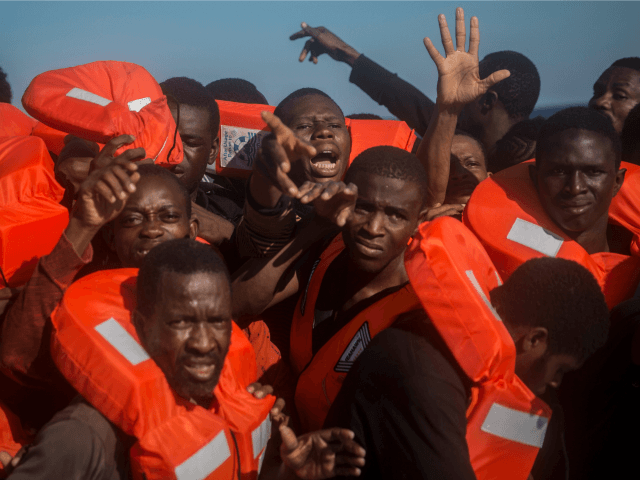Pope Francis spoke out strongly Friday in favor of welcoming more migrants throughout Europe, telling his hearers to beware of the “intolerance, discrimination and xenophobia” that have sprung up around the continent.
In his audience with the European national directors of the Church’s pastoral work with migrants here for a meeting sponsored by the Council of Episcopal Conferences of Europe (CCEE), the Pope recognized the consternation caused by the “massive migrant flows” in Europe that have “thrown into crisis migratory policies held up to now.”
At the same time, Francis rejected national immigration policies designed to protect the cultural and religious identities of the peoples of Europe.
“I won’t hide my concern in the face of the signs of intolerance, discrimination and xenophobia that have arisen in different regions of Europe,” the pontiff said, which are “often fueled by reticence and fear of the other, the one who is different, the foreigner.”
“I am worried still more by the sad awareness that our Catholic communities in Europe are not exempt from these reactions of defensiveness and rejection, justified by an unspecified ‘moral duty’ to conserve one’s original cultural and religious identity,” he said.
A report this summer by the Centro Machiavelli found that Europe’s immigration crisis is causing an ‘unprecedented’ shift in Italy’s demographics.
As of last January, Italy had over five million foreigners living as residents, a growth of a remarkable 25 percent relative to 2012 and a full 270 percent over 2002. At that time, foreigners made up just 2.38 percent of the population while fifteen years later the figure has nearly trebled to 8.33 percent of the population.
If current trends continue, the report states, by 2065, first- and second-generation immigrants will exceed 22 million persons, or more than 40 percent of Italy’s total population.
In his address Friday, Francis appealed to the Church’s own history of missionary work among different cultures, as well as the universality of its mission in the world.
“The Church has spread through every continent thanks to the ‘migration’ of so many missionaries who were convinced of the universality of the message of salvation in Jesus Christ, destined for the men and women of every culture,” he said.
“Temptations to exclusiveness and cultural entrenchment have not been wanting in the history of the Church,” the Pope continued, “but the Holy Spirit has always helped us to overcome them, guaranteeing a constant openness toward the other, considered as a concrete possibility of growth and enrichment.”
Pope Francis said he was convinced that “the Holy Spirit will help us to keep an attitude of trusting openness that will allow us to overcome every barrier and scale every wall.”
In his address, the Pope also suggested that Europeans’ trouble with migrants may be due in part to a lack of greater cohesion among European nations and an incomplete process of political unification.
“In my constant listening to the particular churches in Europe I have perceived a profound uneasiness in the face of the massive arrival of migrants and refugees,” Francis said. “This uneasiness must be recognized and understood in the light of a historical juncture characterized by an economic crisis that has left deep wounds. This uneasiness has been aggravated, moreover, by the scope and composition of the migrant flows, by a substantial lack of preparedness in the host countries and by frequently inadequate national and community policies.”
“But the uneasiness is also indicative of the limits in the process of European unification,” the pontiff continued, “of the obstacles faced by the concrete application of the universality of human rights, and of the walls encountered by the integral humanism that constitutes one of the most beautiful fruits of European civilization.”
In this meeting, the Pope did not mention the rights of nations to secure their borders as he has done on other occasions. Neither did he speak of the duty of political leaders to evaluate with prudence their countries’ effective capacity to integrate migrants before deciding how many to take in, a topic that he has often addressed in the past.
Earlier this year, Francis said that Europe’s migrant crisis is “the greatest tragedy since the Second World War.”
Follow Thomas D. Williams on Twitter Follow @tdwilliamsrome

COMMENTS
Please let us know if you're having issues with commenting.